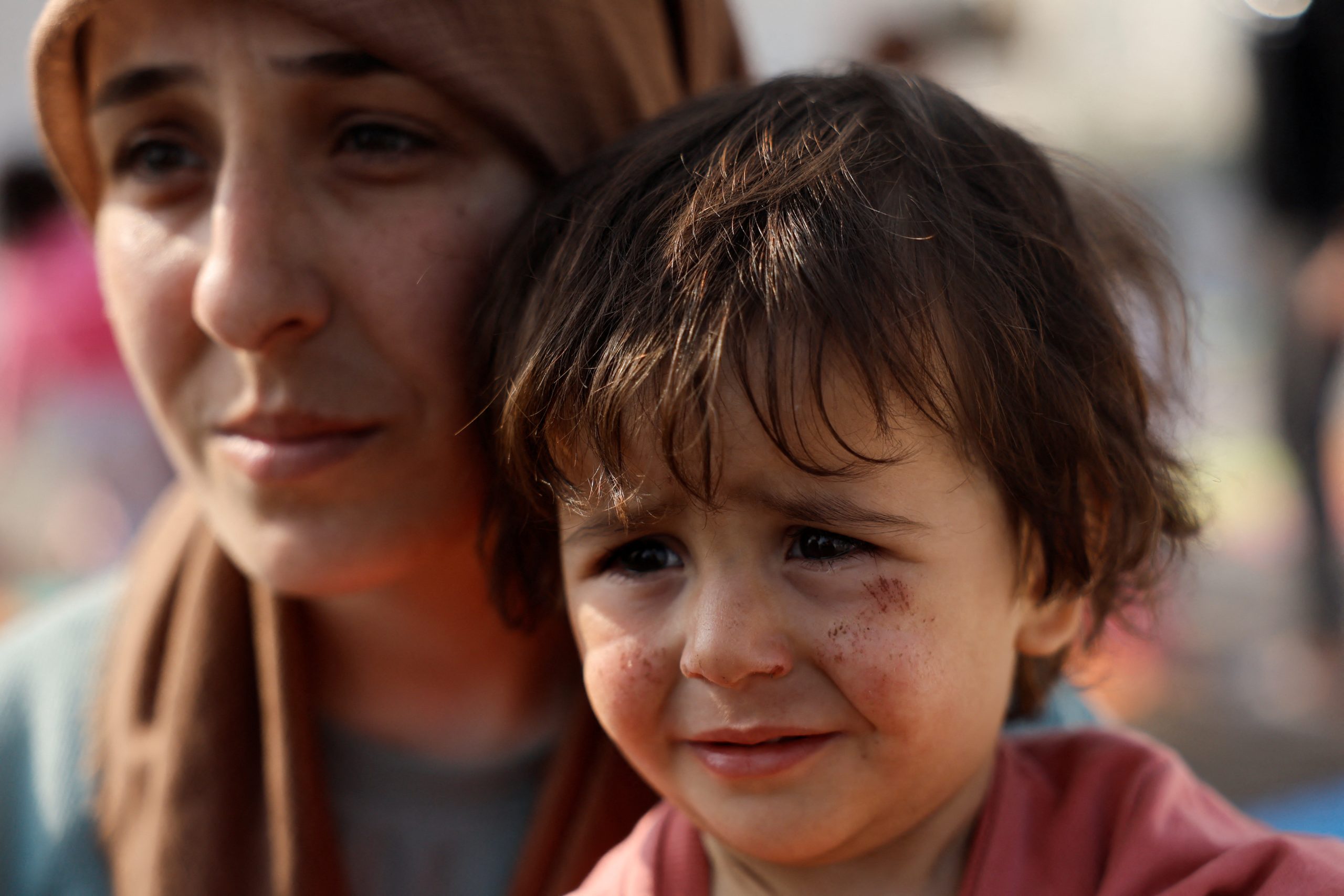
[elfsight_social_share_buttons id=”1″]
With a smile on her face but pain in her eyes, Fatima Asheri watched her two surviving children play with other young earthquake survivors at a camp for displaced people near the center of Turkey’s disaster zone.
“The children are having fun and playing. But the parents feel defeated,” the 28-year-old said, standing among rows of white tents pitched in the shadow of a large football stadium.
The powerful Feb. 6 earthquake crushed the house she lived in, killing her two young sons as well as her husband’s employer who lived on the floor above them.
Her husband and two daughters survived. Her family now count among the millions left homeless by the quake that killed more than 43,500 people in Turkey and close to 6,000 in Syria. Ahseri’s youngest child, 18-month-old Miriam, scraped both her plump cheeks as the house collapsed but was otherwise fine. The wounds were then inflamed by nights spent sleeping out in the cold before they made it to the camp.
Like many who survived the tremor, Asheri said she now struggled with the bittersweet feeling of living with loss — feelings she said often arose when she observed her children laughing and playing, or sleeping soundly at night.
“Life goes on for them, with or without. A child forgets, but adults don’t forget,” she said, wearing a light blue sweater and loose brown veil over her hair.
Originally from the Syrian province of Latakia, Asheri fled the country’s civil war in her late teens, marrying a Turkish man and settling in a village outside the cosmopolitan city of Antakya that now lies in ruins.
Her daughters write Turkish better than Arabic, and she said the family plans to stay in the country for them, though she is worried about finding accommodation with no income.
President Tayyip Erdogan has pledged to rebuild housing within one year. For the foreseeable future, survivors will remain settled in tents, container homes, or government-sponsored accommodations.
“We can’t think of the future. We did, and we worked towards it and then everything disappeared,” Asheri said.
At her feet, Miriam put on shoes piled up beside a large mat where children sat forming play dough into hearts and stars.
“We say that God gives and God takes, this is His will,” Ahseri said, her youngest born taking small steps in shoes made for someone much older than her years.
“This life always walks forwards.”
Copyright 2023 Thomson/Reuters
